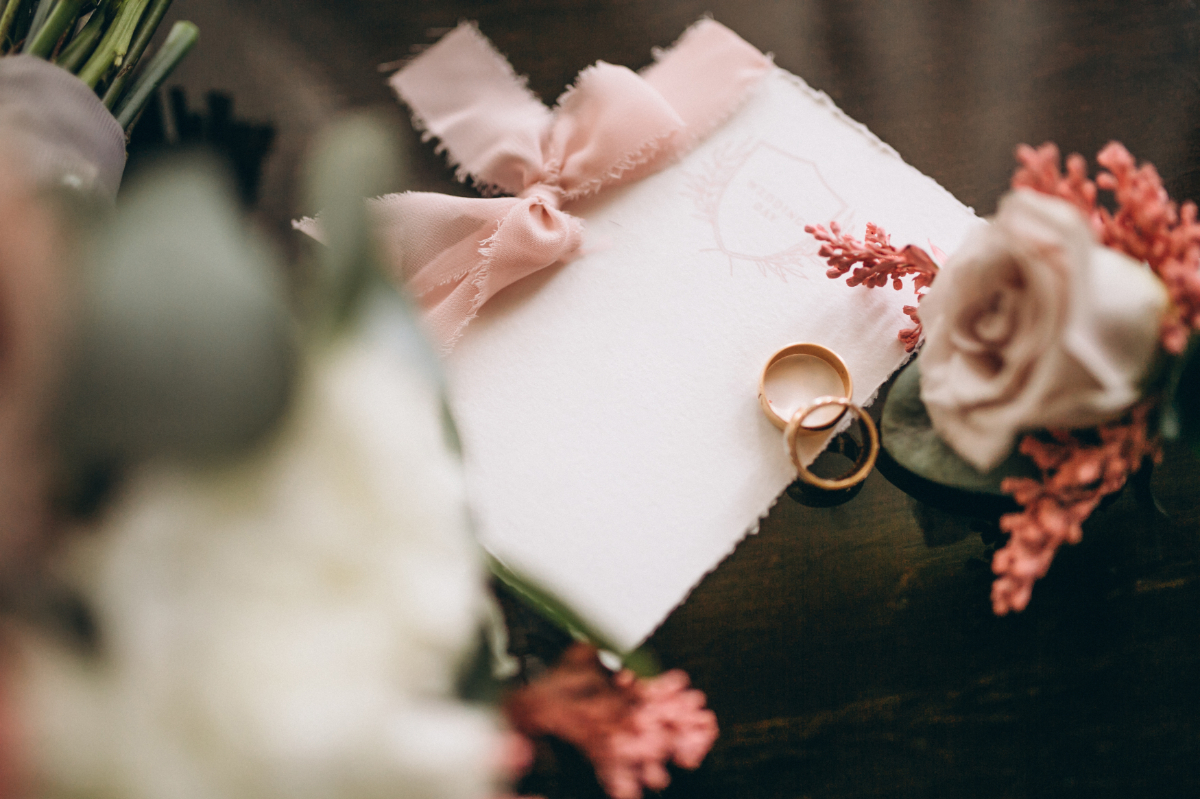
What should you know about wedding invitation etiquette?
- Send save-the-dates
- Send the invitations well in advance
- Include all necessary details
- Be specific
- Include your guests’ titles
- Reception and ceremony
Your special day can only be made better by having people there to share it with. Invitations are the way you communicate with your guests, so they should be given enough attention too. Some people take it for granted, and the guests can easily tell. To help you avoid this, we’ve prepared this wedding invitation etiquette guide for you.
There are a number of details to consider when making your wedding invitation. From the wording to the names of the guests, anything can go wrong. You don’t want to offend your guests if you want to keep the day special. Read on to the guide below for more tips!
Send Save-the-Dates
A wedding is a big event, and people who come to attend as guests know and appreciate that. These people have their own lives as well so it’s only customary to send save-the-dates for the event.
Save-the-dates are different from the actual invitations, but it is important to send them out too. Doing this would let your guests adjust or prepare their schedules even without the specifics of the event yet. These are usually sent out around six to eight months before the wedding.
Save-the-date cards are meant to ensure that your guests can block out that date on their calendars. It doesn’t have to have a venue or other specific details, so don’t sweat it!
Send the Invitations Well in Advance
The save-the-date cards only have the date of your event, so the other details will have to be included in the invitations. When you send your invitations, your guests should have enough time to send an RSVP, prepare for the dress code, and to finalize their plans. This is especially important if you’re having a destination wedding because making travel arrangements take time.
You also need to set the deadline for the RSVP at least one week before the wedding, so you can send the final headcount to your caterer. If you send out invitations too close to the day of the wedding, everything will be done in a rush.
Include All Necessary Details
To maintain the smooth flow of everything, you can never go wrong with keeping your guests well-informed. This starts with the wedding invitations.
Your guests should get all the information they need from the invitations alone. They should include the hosts, the request, the couple if they’re not also hosting, the date and time, the venue, reception info, dress code, and wedding website if you have one. The RSVP should be sent with the invitations but on a separate card.
If you have a registry, including them in your invitations might make it seem like you’re asking for gifts. Instead, you can include them on your website to refrain from being impolite.
Be Specific
Being specific on your invitations will avoid any misunderstandings. Make sure to word the invitations properly and keep them clear and simple.
The host of the wedding is usually the one who pays for everything. Traditionally, the parents of the couple do this, but more couples are hosting their weddings themselves. Their names should be included in the invitation for good measure.
The complete names of each guest should be spelled out properly instead of just saying “guest” or “guests”. You know exactly who you want to invite, and using their names makes it crystal clear. This avoids any assumptions about bringing children (if you want an adults-only wedding) or plus ones.
Put the proper time on your wedding invitations. Some couples put an earlier time on their invitations to make sure guests arrive on time, but people already know to be early. If you don’t put an accurate time, then guests might have to wait longer for the event to start.
Include Your Guests’ Titles
If you’re inviting guests with titles, make sure to include them in the card. These include doctors, engineers, and other professions that attach titles to their names. Showing respect to people’s titles is good etiquette not just for weddings, but for any event in general.
Reception and Ceremony
In your invitations, you should include the details for the reception. Will it take place at the same venue as the ceremony? When will it happen? Some weddings have a separate venue for the reception, so if you plan on doing so, make sure to inform our guests.
Simply adding phrases like “reception to follow” to the invitation should be enough. If necessary, you can always print a separate card for reception details.
Also, it is considered impolite to invite guests to the ceremony but not the reception. Your guests might think that you are not willing to pay for their food or something similar. We highly recommend that you invite all guests to both the ceremony and the reception. Besides, more guests mean more people to celebrate with!
Key Takeaway
The essence of this wedding invitation etiquette guide is just to treat your guests with respect. A wedding invitation should give the guests everything they need to know, and they shouldn’t be offended by anything!
As important as they are, invitations are not the only things you should prepare for. Will you be having your wedding day soon? We can help! We offer catering services for weddings and more! Feel free to send us a message here to learn how we can assist you in your preparations!